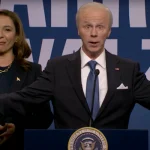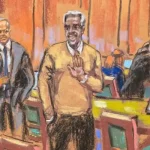Over 400 UK artists, including Elton John and Dua Lipa, urge copyright law reforms to protect their work from unauthorized AI use.

More than 400 prominent British musicians, writers, and artists — including Dua Lipa, Sir Elton John, Sir Ian McKellen, and Florence Welch — have signed a joint letter urging Prime Minister Sir Keir Starmer to update the UK’s copyright laws to protect their work from misuse by artificial intelligence developers.
This letter, sent ahead of a crucial vote in the House of Lords, emphasizes growing concerns in the creative industry about the unregulated use of their intellectual property to train AI systems.
The signatories argue that without proper safeguards, artists risk “giving away” their work to powerful tech companies without consent or compensation.
They warn that such unchecked use not only jeopardizes individual rights but also threatens the UK’s reputation as a global creative leader. The letter states, “We are wealth creators, we reflect and promote the national stories, we are the innovators of the future, and AI needs us as much as it needs energy and computer skills.”
At the center of their request is support for an amendment to the Data (Use and Access) Bill proposed by Baroness Beeban Kidron.
The amendment would require AI developers to disclose when and how copyrighted material is used to train their systems, creating transparency and enabling the development of fair licensing agreements between creators and companies. Supporters say this would help ensure that human-created content remains viable and protected in the age of AI.
High-profile signatories include Nobel Prize-winning author Kazuo Ishiguro, Coldplay, singer Kate Bush, playwright David Hare, and filmmaker Richard Curtis. Sir Paul McCartney, who has previously spoken out about the dangers of AI “ripping off” artists, also added his name to the letter.
In an earlier statement, Ishiguro questioned the fairness of changing longstanding copyright protections to benefit large corporations at the expense of individual creators. He noted the government had shown signs of reconsidering previous proposals but stressed the need for meaningful consultation moving forward.
The government has responded by emphasizing its intent to support both creative industries and AI development. A spokesperson stated that no policy changes would be made unless they were found to be fair to creators.
“We want our creative industries and AI companies to flourish,” the spokesperson said, adding that a full report and economic impact assessment would be published to evaluate the issue from all sides.
However, not all voices agree with the artists’ stance. Julia Willemyns, co-founder of the Centre for British Progress think tank, criticized the proposed amendment, warning that it could stifle innovation and damage the UK’s ambitions in AI.
She argued that restrictions might simply drive AI development overseas and would not prevent foreign companies from using British creative content.
This debate comes amid broader concerns about how generative AI tools — capable of creating new text, images, and music — are trained using vast datasets that often include copyrighted materials.
In February, artists including Annie Lennox and Damon Albarn released a silent protest album to draw attention to what they see as a failure to protect their rights in the face of emerging technologies.
The UK government has previously floated a proposal allowing AI developers to freely use publicly available online content unless the creator opted out.
This idea sparked significant backlash, prompting officials to reconsider. Baroness Kidron’s latest amendment seeks to establish clear, legally enforceable expectations around transparency and licensing.
With the upcoming vote in the House of Lords, the creative community is hoping the government will act decisively to ensure that UK copyright laws evolve to meet the challenges of the AI age — not just for the protection of artists, but to maintain the country’s standing as a cultural and technological leader.
source BBC





